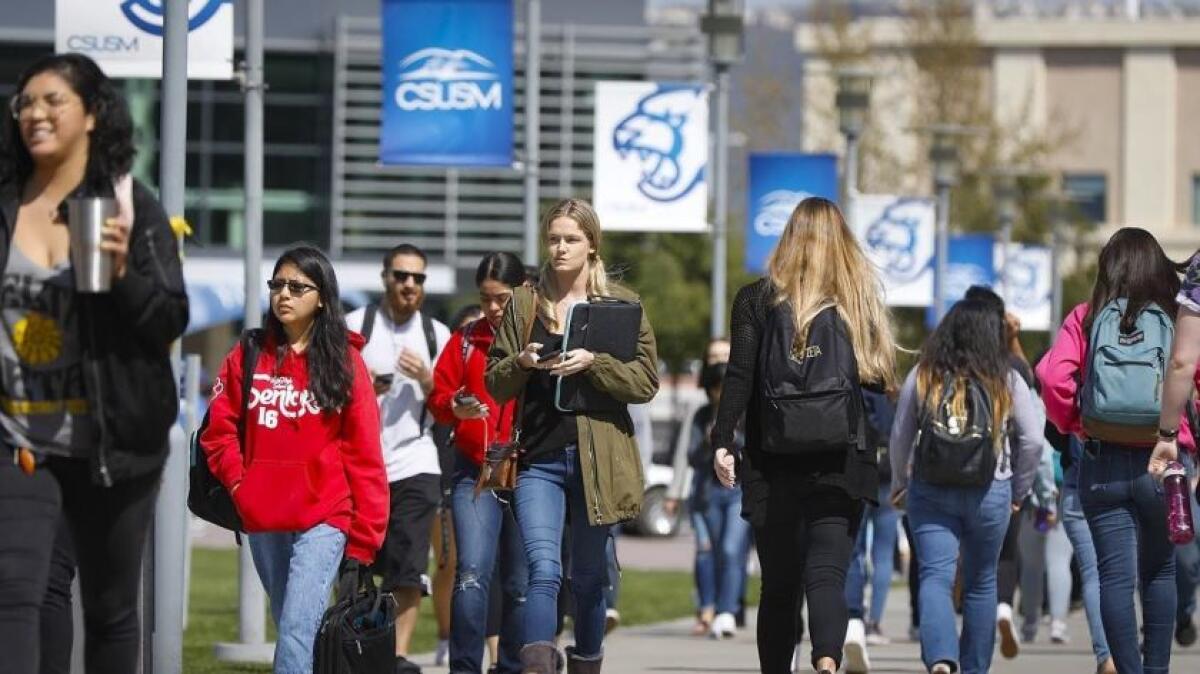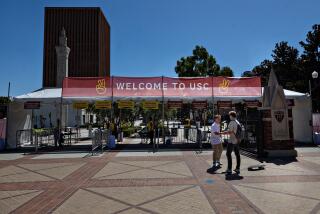Cal State San Marcos may remove benefactor’s name from campus over remarks about immigrants

- Share via
SAN MARCOS, Calif. — Cal State San Marcos is considering removing the name of one of its biggest benefactors from a campus building, road and traffic circle due to controversial remarks he made nearly 30 years ago about immigrants.
In a move that reflects change occurring at many of the nation’s campuses, the school’s Academic Senate last week voted 56 to 2, with two abstentions, to remove the references to the late William Craven, a moderate Republican who served northern San Diego County in many capacities, including as a member of the state Senate.
The faculty also is seeking to remove a bust of Craven that is on campus.
Cal State San Marcos President Ellen Neufeldt says she will appoint a group to examine Craven’s legacy, which includes the pivotal role he played in persuading the California State University system to establish a campus in San Marcos in 1989.
The group will ensure “that many voices can be heard from our campus and external community,” said Margaret Chantung, the school’s communication’s chief. “Consultation is taking place now on the overall charge of the group and their timeline for moving forward, but that should be firmed up by the end of the semester, which is quickly approaching.”
Craven was well known in the state Assembly and, later, state Senate, for bipartisanship. He supported Democrats on an array of issues, including the Equal Rights Amendment for gender equality and the property tax measure Proposition 13. That helped him build the influence he needed to help create Cal State San Marcos.
But Craven upset many people during a 1993 Senate hearing when he referred to workers who were in the United States illegally as “perhaps on the low scale of humanity, for one reason or another.” He later said he was referring to the “lower rung of humanity, economically speaking.”
He caused more controversy the following year when he said it might be possible to pressure employers not to hire unauthorized immigrants by issuing ID cards to citizens of Latino ancestry. Craven said he thought the process might be clumsy and demeaning, but he didn’t know of an alternative.
In 1994, activists tried and failed to get Cal State trustees to remove his name from campus memorials.
Craven died of congestive heart failure in 1999.
It has become fairly common over the last two years for colleges and universities to remove the names of people who have made controversial remarks. Those schools include UC Berkeley, which last year renamed three buildings because their namesakes had made racist statements.
Robbins writes for the San Diego Union-Tribune.
More to Read
Sign up for Essential California
The most important California stories and recommendations in your inbox every morning.
You may occasionally receive promotional content from the Los Angeles Times.











